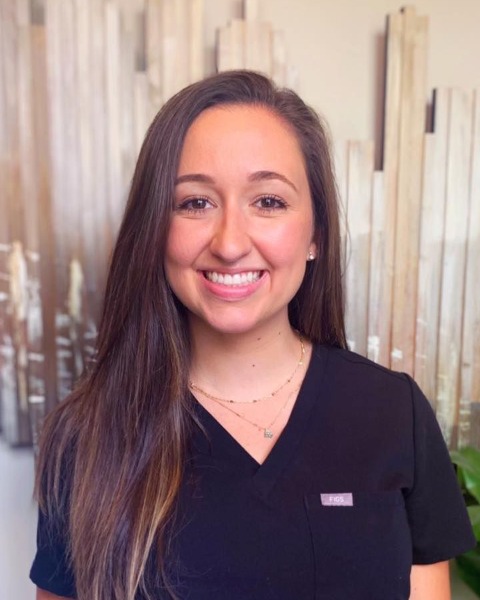Research (R)
(PP1317) Graduate Student Involvement in State-Level Audiology Organizations in Kentucky
- LG
Laura N. Galloway, AuD
Research Audiologist
University of Louisville
LOUISVILLE, Kentucky, United States 
Elizabeth Medlock
Graduate Student
University of Louisville , United States
Elizabeth Medlock
Graduate Student
University of Louisville , United States- LG
Laura N. Galloway, AuD
Research Audiologist
University of Louisville
LOUISVILLE, Kentucky, United States
Presenter(s)
Lead Presenter(s)
Contributor(s)
Summary:
Rationale: Experiential learning leads to positive outcomes in students’ education and career paths1. Experiential learning is anything that students can learn by doing themselves outside of the classroom. Increasing involvement in real world situations helps students be more prepared for their career2. Researchers found that involvement in professional organizations helped pharmacy students establish professional traits such as accountability, creativity, professional pride, and ethics which enhances their roles as future pharmacists3. To date, no research has been done for the same concept in the field of audiology. Involvement in state-level professional organizations is one form of experiential learning. Two professional audiology organizations in the state of Kentucky are the Kentucky Academy of Audiology (KAA) and the Kentucky Speech Language Hearing Association (KSHA). These organizations are free for students to join and offer opportunities for networking, volunteering, and scholarship. The goal of this project is to promote experiential learning for graduate Doctor of Audiology students through participation in state level organizations.
Purpose: The purpose of this study is to describe and measure efforts to increase involvement in state level audiology organizations.
Methods: All research procedures were approved by the University of Louisville Institutional Review Board (IRB). First students had their current level of awareness and involvement in these organizations measured with a survey. Then they received a presentation regarding the benefit of membership as well as information about scholarship opportunities. Finally their awareness and involvement were assessed again to determine if the presentation and scholarship were successful in increasing these factors.
Part of this project involved creating a presentation to inform and a scholarship to entice membership. The scholarship committee was comprised of 3 board members of the Kentucky Academy of Audiology. Logistics for the scholarship were outlined on this committee. A board member from each professional organization was selected to present to the students. Each board member had ample experience in their respective organization and was able to illustrate each one's importance and relevance to students. The students were then invited to apply to the scholarship in order to promote involvement in these organizations. After the scholarship deadline passed, students were surveyed again to assess outcomes including involvement.
Results &
Conclusions: Final data collection will be completed by the end of the year and ready for dissemination by the conference deadline.
References:
< !1. Schoens, A. M., Caliendo, A., Morand, J., Dillinger, T., Naffziger-Hirsch, M., Moses, B., … & O'Brien, T. C. (2018). Internship experiences contribute to confident career decision making for doctoral students in the life sciences. CBE—Life Sciences Education, 17(1), ar16. doi: 10.1187/cbe.17-08-0164
2. Clark, W. R., & Kemp, K. J. (2008). Using the Six Principles of Influence to Increase Student Involvement in Professional Organizations: A Relationship Marketing Approach. Journal for Advancement of Marketing Education, 12, 43–51.
3. Bradford, D., Watmore, P., Hammer, D., & Warholak, T. L. (2011). The relationship between self-reported professionalism and student involvement in pharmacy organizations at one college of pharmacy: an exploratory analysis. Currents in Pharmacy Teaching and Learning, 3, 283–289.
Learning Objectives:
- Upon completion, participants will be able to outline steps to promote audiology graduate student involvement in state level professional organizations.
